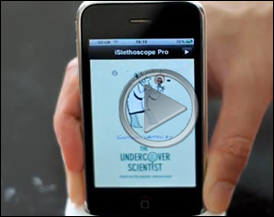The article about Pediatric Associates in CA has a nugget with a potentially outsized impact: the implication that VFC vaccines…
News 12/17/09
From Much Ado: “Re: free Cerner EMR. I got Cerner EMR ‘almost’ for free from my hospital. Less than a year into it, I realized that I couldn’t afford the inefficiencies of ‘free’ and ended up buying another system. Best decision I’ve ever made. I wish the winner good luck.” On HIStalk, Mr. H compares the giveaway to “free kittens” that no one wants.
KLAS announces the best healthcare IT software vendors. Epic is the big winner in multiple categories, including EMR and PM in the 100+ physician market. Other winners in the ambulatory world include eClinicalWorks and Greenway for EMR; and McKesson, Greenway and athenahealth for practice management. In addition to eCW, Greenway, and McKesson, a number of other HIStalk and HIStalkPractice sponsors made the list including Eclipsys, Wellsoft, Nuance, CareTech Solutions, and Hayes Management Consulting. Congrats to all.
A trio of healthcare IT companies announce new applications for mobile devices. 3M Health Information Systems releases 3M Mobile Dictation software for its Mobile Documentation System, giving physicians access to patient data on their smartphones. Amcom Software’s Mobile Connect application allows clinicians and staff to use BlackBerry devices for messages and critical codes. And, Halfpenny Technologies introduces ITF-Mobile, which allows physicians to securely access test results.
SynaMed announces a free HIPAA-compliant patient-to-doctor messaging system that works with its free EMR and PM systems. Reading the fine print on the website, it looks like in addition to the “free” stuff, SynaMed also offers upgraded packages that include software hosting (for $358 a month per provider plus $20 per staff member, you can get EMR/PM and hosting). Unlimited e-mail support is $1,500 a year and support “training” is $85 an hour. When you add it all up, it sounds a bit like getting four free tires, but needing to buy a car if you want more than a tree swing.
ONC accelerates its timetable for rolling out health IT regional extension centers (HITRECs), planning to announce 30 grants on January 21 and another 40 or so in March. Sounds like a good move, given the amount of work that needs to be done in short order.
The computer scientist who wrote the iPhone application iStethoscope says he did it as, “a bit of fun,” and has been astonished by its success. The app, which allows heart sounds to be recorded and e-mailed to other doctors, sells for $.99 and many cardiologists consider it superior to $3,000 digital stethoscopes. That being said, on the iTunes app store, users give iStethoscope an average of two stars out for five.
Culbert Health is conducting a series of EHR workshops on behalf of BCBS Massachusetts. Keith MacDonald, Culbert’s director of strategic services, is leading the sessions that are specifically designed for the needs of smaller practices and cover everything from funding and practice readiness to vendor selection and physician adoption. More details here.
Cerner says it will offer Certify Data Systems’ HealthDock appliance to facilitate bi-directional clinical information sharing between providers, labs, hospitals, and other care settings.
Next time a Pfizer sales rep is in your office, check out the company-issued tablet PCs. Reps will use the devices when requesting drug samples for doctors, choosing the doctor on the screen, which then displays a list of appropriate products for sampling. Pfizer has a mighty big meaningful use incentive: the company paid a $2.3 billion fine for illegally marketing its drugs to doctors, so Uncle Sam wants to keep an electronic eye on them.
Most physicians believe that HIEs would improve quality of care, reduce costs, and save time. Despite the benefits, this survey of 1,000 physicians didn’t find a single doctor willing to pay $150 a month to connect to an HIE. Half of the doctors believe access should be free.
A study of mental health professionals finds most believe electronic records were clearer and more complete than paper records, though not necessarily more factual. A whopping 83% said that if they were a patient, they wouldn’t want other healthcare providers to routinely access their mental health records.
Speaking of mental health, here’s a shocker: teens are more likely to talk to a computer than people. Adolescent patients using a hand-held device to input medical information were 24% more likely to have a follow up medical visit and six times more likely to get care for behavioral problems like substance use or depression.
Daniel J. Kohl resigns as CEO of the struggling Spheris, a medical transcription service company. The company reported a 15% drop in revenue the first half of the year and ended its registration with the SEC in November. Likely adding fuel to the fire was the company’s poor showing in last week’s KLAS report on medical transcription service vendors. Amid customer complaints that Spheris was unable to resolve quality and technology issues, the company was ranked last in a field of 15.




